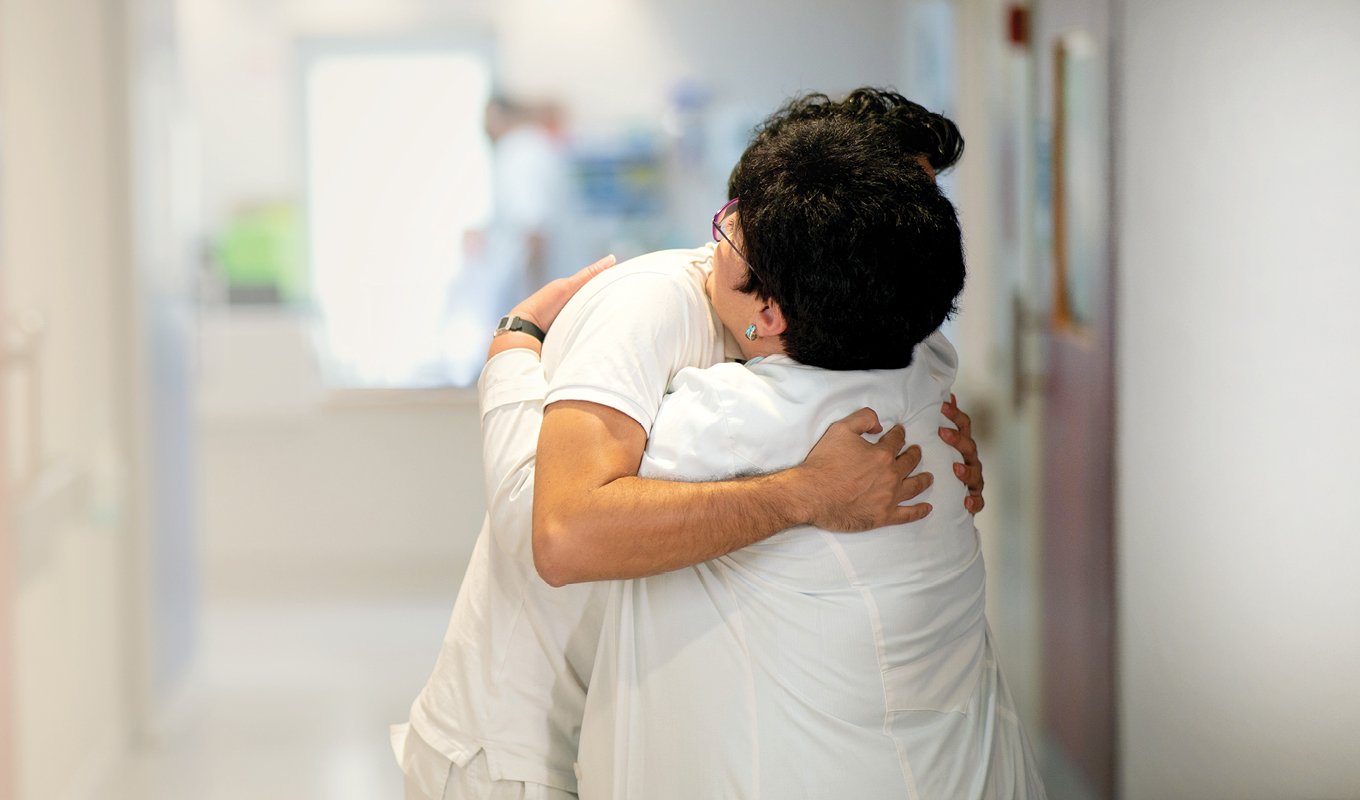Prof. Allon E. Moses is the immediate past head of Hadassah's Department of Clinical Microbiology and Infectious Diseases. One of the foremost experts in his field, he also serves as the president of the Israel Society for Infectious Diseases. After graduating from Ben Gurion University of the Negev, Moses did his residency at Hadassah Hebrew University Medical School and was a clinical fellow at Harvard University. He's been a lecturer and professor at Hadassah for over 20 years.
Monkeypox cases around the world — time to push the panic button?
Just as it seemed that COVID-19 might be waning, the world was hit with the monkeypox virus, which now has been declared a public health emergency. Endemic to central and west Africa, cases were confirmed in Europe and America in early 2022 and to date, some 40,000 cases of the virus have been diagnosed in more than 90 countries, according to the World Health Organization.
In the season opener of "Hadassah on Call: New Frontiers in Medicine," we ask: Is it time to hit the panic button?
To help answer that question, we speak with Prof. Allon Moses, MD, an international infectious disease expert at Hadassah Medical Organization. He stresses that in comparison to COVID-19, with over 600 million cases, monkeypox is a relatively small disease, but that physicians and medical professionals are well attuned to its transmission, treatment and vaccines.
The virus is the latest example of zoonotic diseases [animal-to-human transmission], some of which mutate and result in human-to-human transmission. Monkeypox is transmitted mainly through close contact with an infected person with lesions or with material contaminated with the virus, such as bedlinen. It typically presents with rashes on or near the genital area, as well as the hands, feet, chest or face, and flu-like symptoms; individual with symptoms are advised to avoid close contact, wear a mask and contact a healthcare provider as soon as possible.
Prof. Moses is optimistic about containment, noting that individuals who received the smallpox vaccine as part of routine immunizations before 1980 — the year that smallpox was declared extinct by the WHO — already have at least 80 percent protection from monkeypox and the newer vaccines in production are expected to be equally effective. In addition, he explores and discusses:
- Why have there been so few cases in Israel?
- Are pregnant women at risk for severe disease?
- Is post-exposure vaccination effective?
- What is Hadassah doing to help protect the population?
Further learning:
"Hadassah On Call: New Frontiers in Medicine" is a production of Hadassah, The Women's Zionist Organization of America. Hadassah enhances the health of people around the world through medical education, care and research innovations at the Hadassah Medical Organization. For more information on the latest advances in medicine please head over to hadassah.org.
Subscribe to our podcast on iTunes, Google Play, or your favorite podcast app. If you haven't already, please leave us a review on the iTunes store. It only takes a minute and when you do it helps others discover "Hadassah on Call."
The show is hosted by Maayan Hoffman and produced by the team at the Hadassah offices in both New York and Israel.
Read a transcript of this episode.



.svg)


